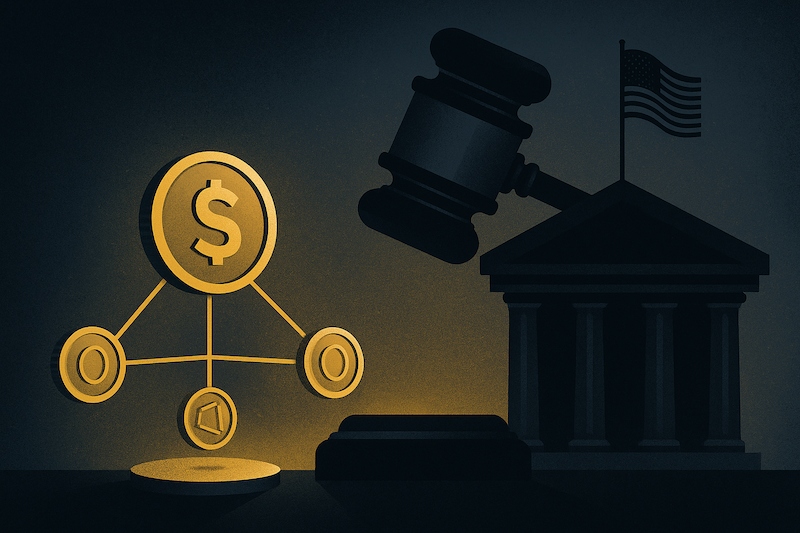Clarity on crypto staking regulations has emerged as a key demand from the digital asset sector as pressure on the SEC increases. Nearly 30 significant cryptocurrency companies, including exchanges, infrastructure providers, and venture firms, formally petitioned the SEC in early 2025. They requested clear direction on how staking should be handled under federal securities laws. This united push reflects growing concern over the present enforcement-heavy approach and its stifling effect on development in the US crypto sector.
Staking should not be regulated as a traditional financial instrument, according to the group. This group is headed by the Crypto Council for Innovation (CCI) and its Proof of Stake Alliance (POSA). They stress staking as a protocol-driven, decentralised procedure that is crucial to proof-of-stake (PoS) network security. Participants must commit assets to confirm transactions and receive rewards based on pre-programmed blockchain logic. This occurs rather than through the efforts of a third party.
The sector points out that staking fails to meet the Howey test for investment contracts. Instead of centralised decision making, network-defined procedures are used to recompense stakeholders, who maintain ownership of their cryptocurrency. Given that staking shouldn’t be subject to SEC securities supervision requires this distinction.
The crypto groups compare staking to proof-of-work (PoW) mining. The group argues that staking’s decentralised, resource-based contribution model is consistent with SEC staff’s statement. This statement notes that PoW mining excludes securities transactions. In both cases, rewards arise from network participation and not from profit schemes.
The industry asks on the SEC to release principles-based guidance that is adaptable to rapid changing technologies. This would foster innovation. Such guidelines would offer clarification without limiting progress. This contrasts with strict securities frameworks. In addition, they believe that current disclosure standards are inappropriate. This is because staking is more technical than financial in nature.
Key Arguments Made by the Crypto Groups in Their Appeal to the SEC for Regulatory Clarity
Clarity on crypto staking regulations was the main focus of the letter that organisations like CCI and POSA issued. Staking is a technical function, not a financial product, it fails the Howey test, it’s similar to mining, transparency regimes aren’t appropriate for it, and regulatory certainty is necessary to promote domestic innovation, highlighted in their five main points.
Crypto Staking Regulation Clarity Backed by Major Industry Players
Major cryptocurrency companies like Andreessen Horowitz, Consensys, Kraken, Lido, Galaxy Digital, Figment, Polychain Capital, Paradigm, and Ava Labs are part of POSA’s alliance. These parties, who represent exchanges, blockchain infrastructure, and venture capital, are united in their demand for regulatory clarification. Their participation demonstrates how widely this problem affects the future of the industry.
Crypto Staking Regulation Clarity May Be Shaped by SEC’s Crypto Task Force
Even though the SEC has not formally replied to the letter yet, its previous moves might suggest that it is becoming more flexible. The SEC established a Crypto Task Force in January 2025 under the direction of Commissioner Hester Peirce, who is well-known for her support of innovation. To get feedback on staking, custody, and decentralised finance, the Task Force has held several roundtables.
Though previous actions such as the charges made against Kraken and Consensys—indicate a strict position, Peirce’s response to suggestions for temporary reprieve and public feedback may indicate a shift to productive discussion. The SEC continues to debate whether staking is a legal feature of Grayscale’s proposed spot Ether ETF, as seen by the agency’s delays in making a decision.
Crypto Staking Regulation Clarity Essential for Market Growth
The crypto industry’s unified push shows that clear and balanced staking regulation is now vital. The US might become the centre for staking innovation if the SEC takes a flexible, principles-based approach. If not, innovation might move elsewhere.
Whether the SEC provides clarification or keeps depending on enforcement without clear regulations will ultimately determine the future of cryptocurrency staking in the US. The industry has presented its argument. The SEC now has the upper hand.
